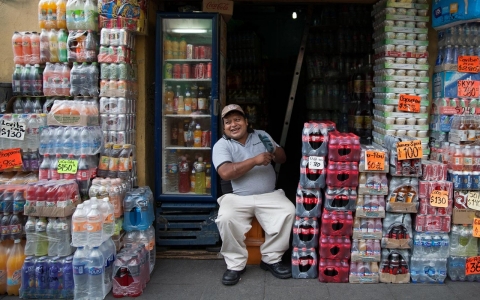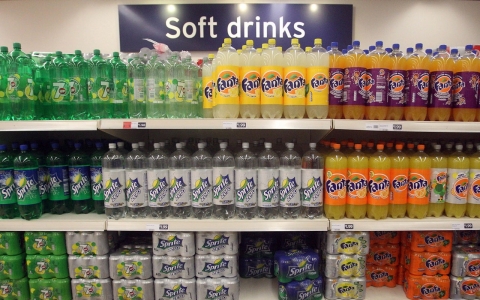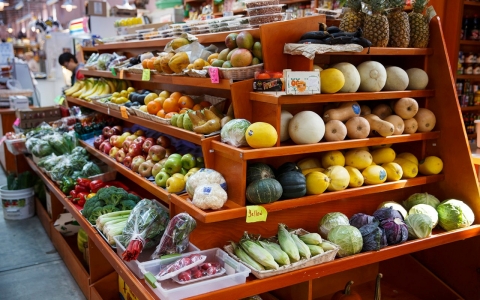Mexico is the first country in the world to tax sugar-sweetened drinks in an effort to curb consumption blamed for obesity and related diseases — and it appears to be working.
Analyzing the first release of data on the effects of the tax, researchers found that sales of sugary beverages across the country dropped by an average of 6 percent in the first year after Mexico implemented the 1 peso (about 6 cents) per liter tax on Jan. 1, 2014, according to a study report published Wednesday in the British Medical Journal.
The decline reached 12 percent for December 2014, and it was even larger among poorer households, the study showed.
“Mexico is a good example that the tax is working, and it can be implemented in other countries,” said Aranxta Colchero, a health economist at Mexico’s National Public Health Institute and lead author of the study.
Researchers from Mexico’s National Public Health Institute and the University of North Carolina’s Department of Nutrition used nationally representative data gathered by Nielsen Mexico's Consumer Panel Services on food purchases between January 2012 and December 2014 from more than 6,200 households in 53 Mexican cities with populations of at least 50,000.
During 2014, the study found, consumers in Mexico bought an average of 6 percent fewer sugary drinks than would have been expected without the tax, which increased the cost of sodas and other sugar-sweetened beverages by about 10 percent. They bought an average of 4 percent more untaxed drinks, such as bottled water.
While Mexicans across income levels bought fewer sugar-laden beverages, it was the poorer households that seemed most affected by the taxes. Their sugary drink purchases declined by an average of 9 percent in 2014, and by 17 percent by the end of that year.
The researchers said that while their study didn’t look at smaller towns or rural areas, it shows the tax has promise in deterring Mexicans from drinking so many sugar-sweetened drinks. They expect the effect to continue in the long term.
Based on economic studies and the team’s previous work, Colchero said they could expect an even larger decline in soda sales with a tax of at least 2 pesos (about 12 cents) per liter — about a 20 percent price increase. But she added that the tax should be implemented alongside other policies, such as public health campaigns and labeling on food and drinks containing excessive added sugar.
“We need to have potable tap water available for households and in schools,” she said. “People should be aware of what they’re drinking.”
In an op-ed that accompanied the paper, Franco Sassi, head of the public health division of the Organization for Economic Cooperation and Development (OECD), lauded the results for confirming that taxation can be an effective way to encourage healthier behavior.
However, he agreed with Colchero that such measures should complement other policies, adding: “Taxes can be part of a public health strategy — and Mexico’s is a great example for other countries — but they cannot be viewed as a magic bullet in the fight against obesity."
Mexico is one of the world’s top consumers of sugary beverages. The average Mexican drinks 111 liters of sugar-sweetened drinks per year, while the average American drinks 103 liters a year, according to a 2015 Euromonitor report.
Mexico also has the highest prevalence of diabetes among OECD countries, according to the Brookings Institution, a Washington-based think tank.
In November 2015, the U.S. Food and Drug Administration issued its first-ever recommendation that Americans limit their sugar intake to no more than 10 percent of their daily calories, or roughly the equivalent of one soda per day.
The World Health Organization made the same recommendation in March 2015, but added that cutting sugar to less than 5 percent of daily calories “would provide additional health benefits,” and would help prevent diabetes and heart disease.

Fighting obesity with a tax on sweet drinks

For the first time, government calls for a cap on sugar, which scientists say causes metabolic syndrome

Expert panel says Americans should eat more fruits and vegetables but eases restrictions on coffee and cholesterol






Error
Sorry, your comment was not saved due to a technical problem. Please try again later or using a different browser.